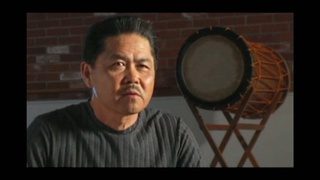Interviews
Blue-eyed doll
The different clubs would have these entertainments. They would ask us to do something. In those days, I used to take advantage of it. “I’ll sing.” (laugh)
I*: And what songs would you sing?
Well depending on the crowd. You know, I had to choose. Look at the crowd and see what would they enjoy. If it was a Japanese crowd, I’d sing a Japanese song.
I: So you sang Japanese songs, too?
Oh yes. I loved…the one I like to sing a lot is when America sent a doll to Japan – goodwill. Remember? Goodwill doll.
I: So how did that song go?
Yeah, let’s see. How did that go? I sang it all the time. I’m just speechless or voiceless now. Oh, blue-eyed doll.
aoi meoshita oningyo ha
amerika umare no seruroido
nihon no minato he tuitatoki
ippai namida wo ukabeteta
watashi ha kotoba ga wakaranai
maigoni nattara nantoshiyo
yasashii nihon no jyouchan yo
nakayoku asonde yattokure
nakayoku asonde yattokure
English translation
A blue-eyed doll
Made of celluloid, Was born in America.
When she arrived at a harbor in Japan
She had many tears in her eyes.
I do not understand the language.
If I get lost, what should I do?
Warm-hearted Japanese girls
Please be my friends and play with me.
Please be my friends and play with me.
That song. I will never forget.
* ”I” indicates an interviewer (Akemi Kikumura Yano).
Date: December 6, 2005
Location: Oregon, US
Interviewer: Akemi Kikumura Yano
Contributed by: Watase Media Arts Center, Japanese American National Museum.




